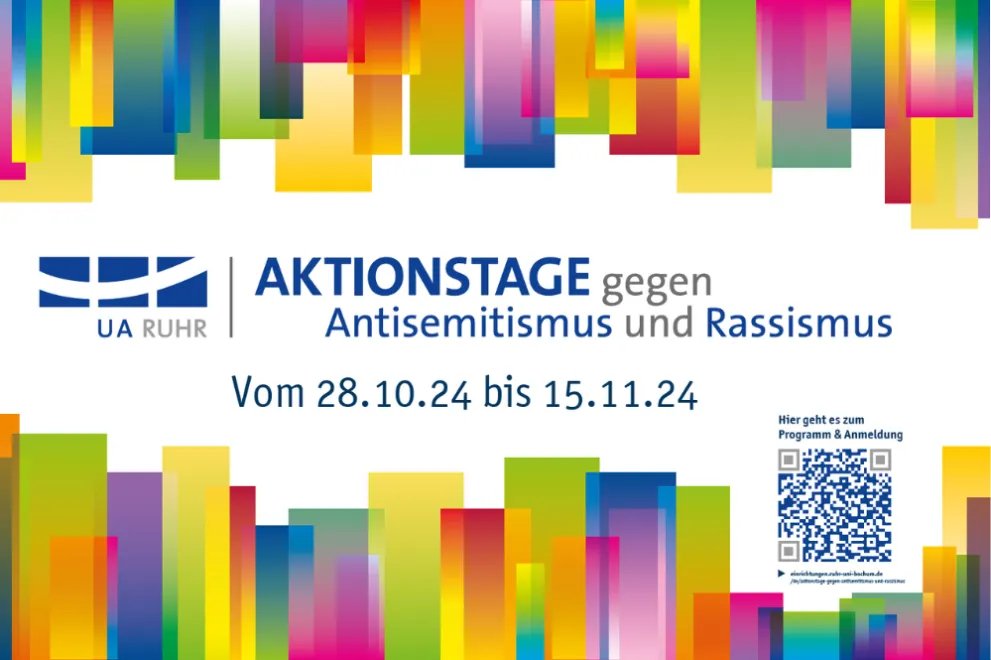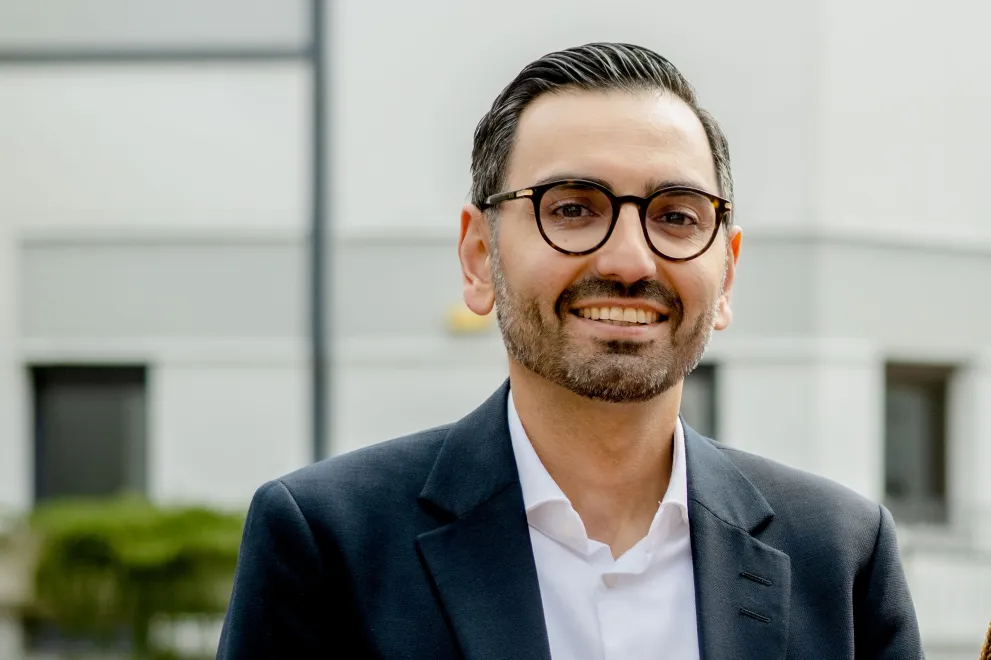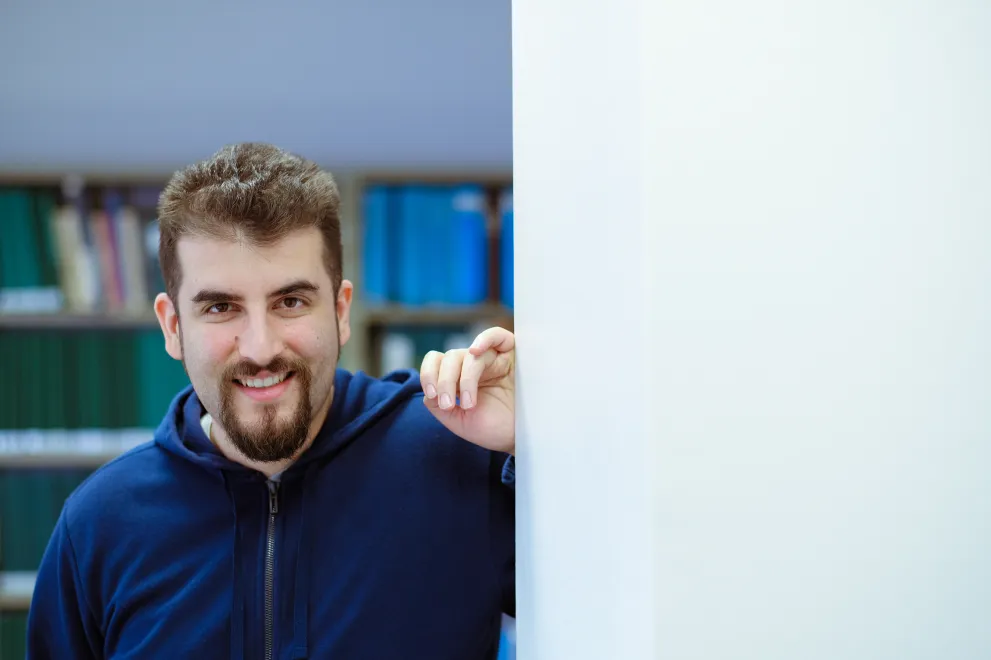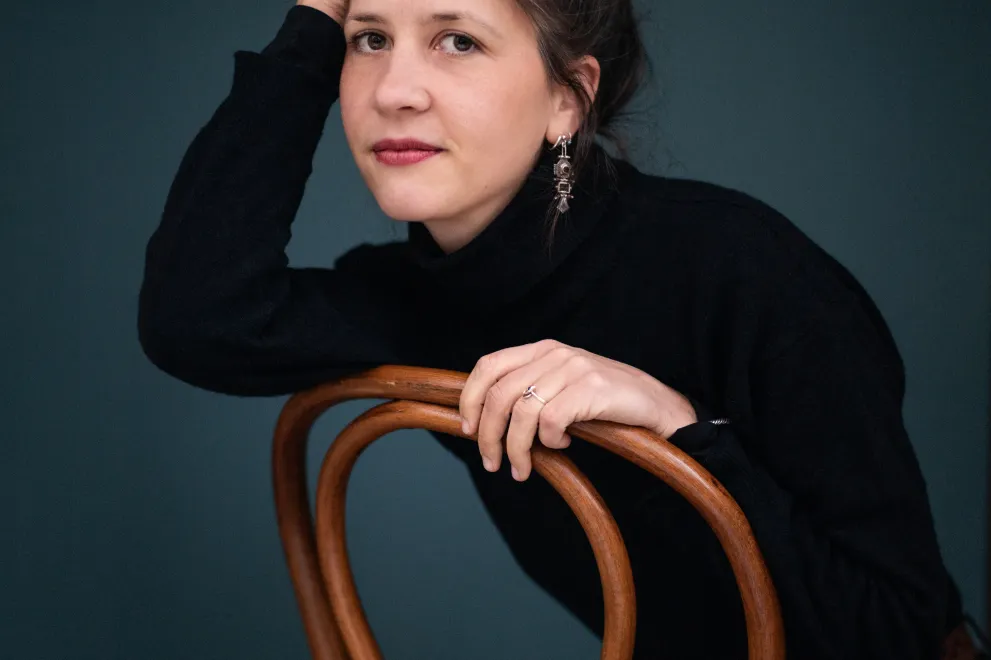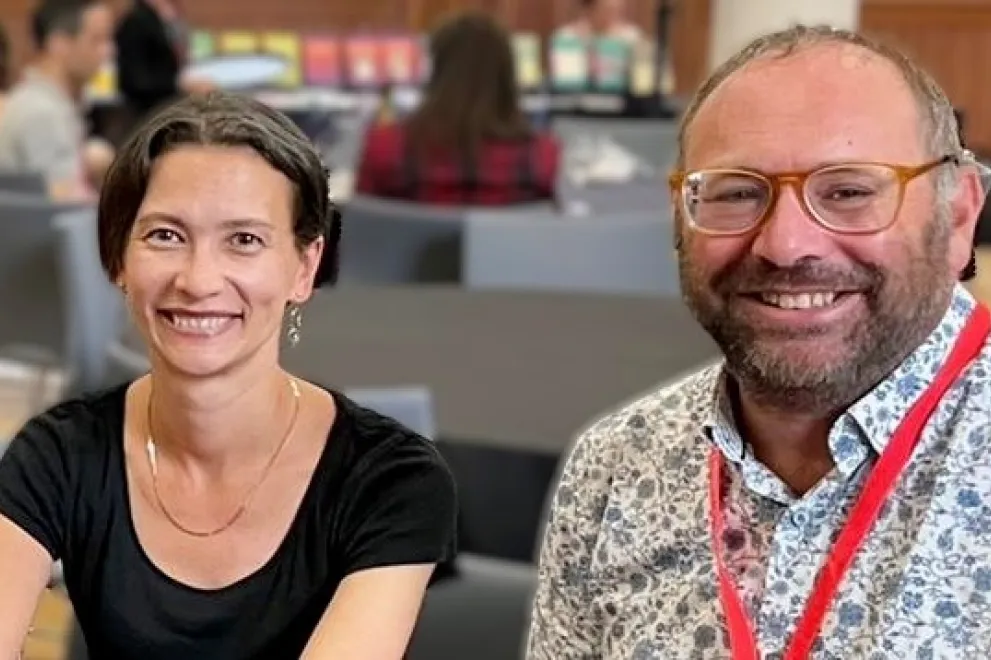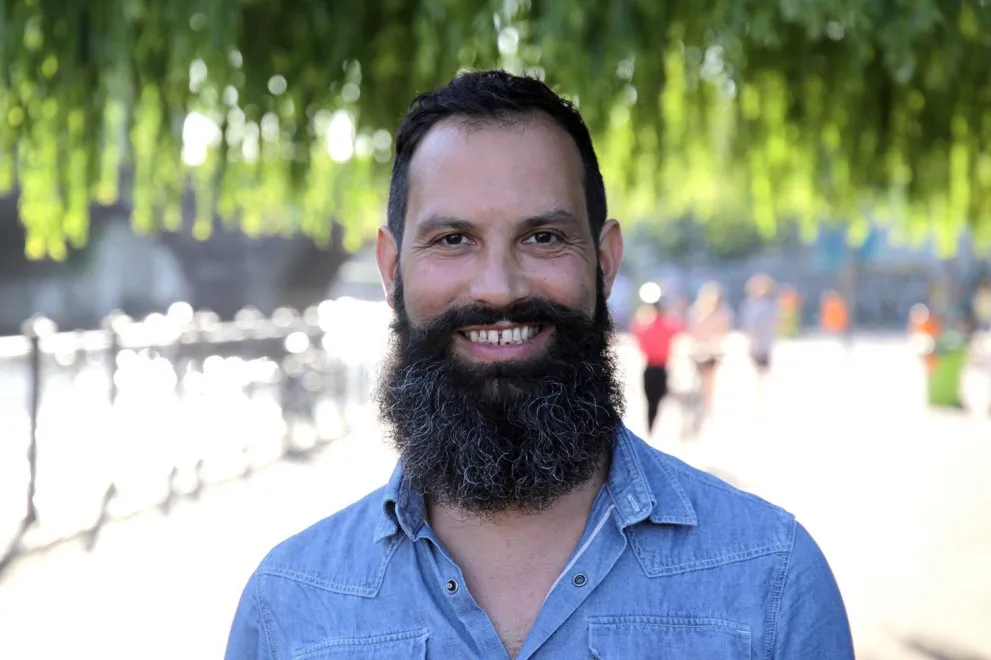Harassment, discrimination, and abuse of power occur in all areas of society, including universities. During the UA Ruhr Action Days against antisemitism and racism, participants with diverse professional and personal backgrounds, experiences, and perspectives will come together. This will result in a varied programme with diverse perspectives. This will create a varied program that incorporates multiple viewpoints. To establish a space that is as free from discrimination as possible for all participants, the following Code of Conduct outlines the expected respectful behavior during the Action Days.
By participating in the Action Days, you agree to comply with the following Code of Conduct:
-
We expect participants to demonstrate consideration and respect in both speech and actions.
-
We encourage participants to engage in constructive dialogue on contentious issues.
-
Discriminatory behavior based on gender identity and expression, sexual orientation, economic status, employment status, disability, illness, neurodiversity, physical appearance, origin, nationality, ethnicity, race, skin color, age, religion, or any other identity category will not be tolerated.
-
Any (non-)verbal, physical, or visual harassment is strictly prohibited. This includes, but is not limited to: intimidation, stalking, harassment, photographing or recording individuals without consent, persistent disruption of lectures, workshops, or other events, unsolicited physical contact, and any form of sexual violence.
-
The photo policy will be strictly enforced: no photos or other recordings (audio, video, etc.) are allowed during events.
-
Participants who are asked to stop harassing behavior are expected to comply immediately.
-
We expect participants to remain mindful of their surroundings and the presence of others.
If participants observe harassment, discrimination, abuse of power, or other behavior that violates this Code of Conduct, or if they are personally affected, they can confidentially contact the awareness team or the organizational team
Consequences of unacceptable behaviour:
The organizational team reserves the right to take appropriate measures in response to unacceptable behavior by participants, which may include exclusion from the event.

